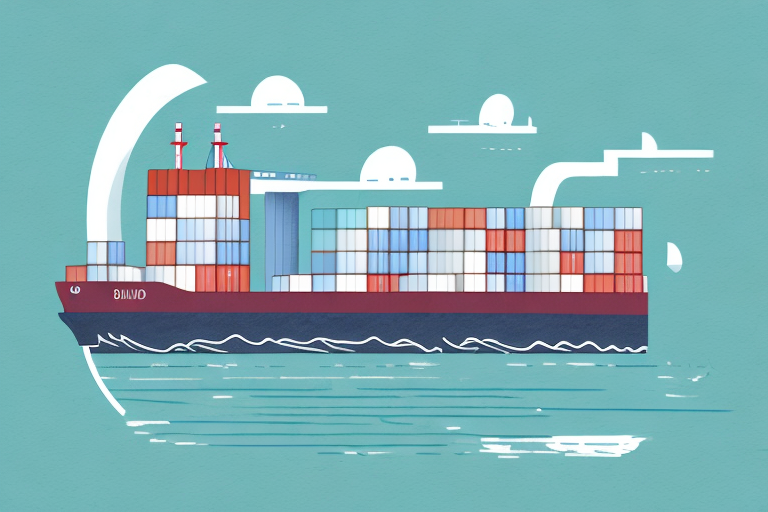What Is Landed Cost and How Does It Impact Your Business?
If you are an import or export business owner, you may already be familiar with the term landed cost. However, if you are new to the industry or planning to start a business that involves international trade, this term might be new to you. In this article, we will define landed cost and explore its components, advantages, impact on business decisions, and other related topics.
Understanding the Definition of Landed Cost
Landed cost is the total cost that a business incurs when importing or exporting goods from one country to another. This cost includes the original price of the product, plus all associated costs such as transportation, insurance, duties, taxes, customs fees, and other expenses. For a comprehensive definition, refer to Investopedia.
Accurately calculating landed costs is crucial for businesses to determine the true cost of their products and make informed decisions about pricing and profitability. Failure to properly account for all expenses involved in importing or exporting goods can lead to unexpected costs and reduced profits. Additionally, understanding landed costs can help businesses identify areas where they can potentially reduce expenses, such as by negotiating better shipping rates or finding more cost-effective suppliers.
The Components that Make Up Landed Costs
Landed costs are made up of several components that need to be taken into account to determine the accurate cost of importing or exporting goods. These components include the following:
- Product costs: The cost of the product itself, including packaging, labeling, and other related costs.
- Logistics costs: The cost of transporting the product from the origin to the destination, including freight charges, handling fees, and other related costs.
- Regulatory costs: Duties, taxes, tariffs, or other costs levied by the government or regulatory authorities.
- Compliance costs: Costs related to compliance with specific laws, such as health and safety regulations, environmental regulations, or labor laws.
- Insurance costs: Costs related to the insurance coverage required for transportation and other risks involved in the import/export process.
- Other costs: Costs related to bank fees, currency exchange rates, packaging, storage fees, and other associated expenses.
It's important to note that landed costs can vary depending on the country of origin and the destination country. For example, some countries may have higher regulatory or compliance costs than others. Additionally, the mode of transportation used can also impact landed costs, as air freight may be more expensive than sea freight. Businesses must carefully consider all these factors when calculating landed costs to ensure accurate accounting of all expenses and make informed decisions about their import/export operations.
Advantages of Knowing Your Landed Costs
Understanding your landed costs provides several advantages for your business, including:
- Informed Pricing Strategy: Helps you set the right prices for your products by considering all associated costs and desired profit margins.
- Supply Chain Optimization: Provides insight into areas where you can optimize your supply chain to reduce costs and increase efficiency.
- Negotiation Power: Assists in identifying areas where you can negotiate better terms with your suppliers or customers.
- Accurate Profit Margins: Enables you to accurately calculate your profit margins on each sale, which is crucial for forecasting and budgeting.
Another advantage of knowing your landed costs is the ability to identify potential risks and uncertainties in your supply chain. By understanding the costs associated with each step of the process, you can better anticipate any potential disruptions or delays that may impact your business. This proactive approach allows you to develop contingency plans and mitigate any negative effects on your operations and bottom line.
How Landed Costs Affect Your Business Decisions
Landed costs can significantly impact your business decisions, especially regarding pricing strategy, sourcing, and product development. By understanding your landed costs, you can make informed decisions about the following:
- Pricing Strategy: Knowing your landed costs helps you set competitive and profitable prices for your products.
- Sourcing Decisions: Identifying the most cost-effective sourcing options and choosing suppliers who offer the best value for your money.
- Product Development: Designing products that are more cost-effective to import/export, minimizing overall costs, and maximizing profits.
Moreover, landed costs can also affect your inventory management decisions. By factoring in landed costs, you can determine the optimal quantity of products to order, balancing the costs of holding inventory against the costs of ordering more frequently.
Another important consideration is the impact of landed costs on your cash flow. Higher landed costs can increase the amount of cash needed upfront for your products, affecting your ability to invest in other areas of your business. Understanding your landed costs allows you to plan your cash flow more effectively and ensure sufficient funds to cover all expenses.
Factors that Influence Your Landed Cost Calculations
Several factors can influence your landed cost calculations, such as:
- The type of product you are importing/exporting.
- The origin and destination countries.
- The mode of transportation used.
- The weight and size of the product.
- The shipping terms agreed upon between the buyer and seller.
Another important factor is the customs duties and taxes imposed by the importing country. These charges can vary greatly depending on the product being imported, the country of origin, and the trade agreements in place between the two countries. For detailed information on customs duties, refer to the U.S. Customs and Border Protection website.
Common Mistakes in Calculating Landed Costs and How to Avoid Them
Calculating landed costs can be challenging, and several common mistakes businesses tend to make include:
- Not considering all associated costs involved.
- Using incorrect exchange rates.
- Failing to account for unexpected expenses, such as delays at customs or additional storage fees.
- Not using the correct Incoterm (shipping terms) agreed upon between the buyer and seller.
To avoid these mistakes, it’s essential to have a clear understanding of all costs involved in the import/export process and use accurate data from reliable sources for your calculations. Collaborating with experienced freight forwarders or customs brokers can also help ensure accurate and efficient landed cost calculations.
Another common mistake is not considering the impact of tariffs and taxes. These costs can vary significantly based on the country of origin, destination, and type of product. Failure to accurately account for these costs can result in unexpected expenses and supply chain delays.
To mitigate this, research and understand the tariffs and taxes associated with your specific product and trade route. Working with a customs broker or trade consultant can provide valuable insights and guidance in navigating these complex regulations.
Different Methods for Calculating Landed Costs
There are several methods for calculating landed costs, depending on your specific needs and preferences. Some commonly used methods include:
- Spreadsheet-Based Calculation: A manual process using spreadsheets to calculate landed costs, which can be time-consuming and prone to errors.
- Integrated Software Solutions: Specialized software that automates the landed cost calculation process and provides real-time visibility into all cost components.
- Outsourcing to a Freight Forwarder or Customs Broker: Delegating the landed cost calculation process to an experienced third-party provider who can handle all associated tasks and provide accurate, reliable results.
The method you choose can significantly impact your business operations and profitability. Spreadsheet-based calculations may be suitable for small businesses with low transaction volumes but can become cumbersome and error-prone as transaction volumes increase. Integrated software solutions offer greater accuracy and efficiency but may require a significant investment in technology and training. Outsourcing to a freight forwarder or customs broker provides a turnkey solution that frees up internal resources and offers specialized expertise, albeit at a higher cost.
How to Optimize Your Supply Chain with Efficient Landed Cost Management
Efficient landed cost management can help optimize your supply chain by:
- Identifying areas for cost-saving opportunities.
- Minimizing delays and risks associated with the import/export process.
- Improving forecasting and budgeting accuracy.
- Providing data-driven insights into the overall health of your supply chain.
To achieve efficient landed cost management, it’s essential to have a clear understanding of your supply chain, work with reliable suppliers, and implement a system to accurately calculate and track landed costs.
The Role of Technology in Streamlining the Landed Cost Calculation Process
Technology plays a significant role in streamlining the landed cost calculation process by providing real-time visibility into all associated costs and automating tedious manual tasks. Specialized software solutions, such as Enterprise Resource Planning (ERP) systems, can integrate all necessary data sources and provide actionable insights into cost optimization opportunities. Additionally, cloud-based solutions offer accessibility and scalability, allowing businesses to adapt to changing market conditions and requirements.
Real-Life Examples of Effective Landed Cost Management Strategies
Several companies have successfully managed their landed costs through effective strategies, such as:
- Walmart: The retail giant has been expanding its use of blockchain technology to provide better visibility into its supply chain and improve landed cost management efficiency.
- Apple: The tech giant has implemented an integrated supply chain management system that provides end-to-end visibility into all associated costs and ensures timely delivery of products.
- H&M: The fashion retailer has implemented a sustainable supply chain management program focusing on responsible sourcing and efficient landed cost management.
Importance of Accurate Record Keeping for Effective Landed Cost Management
Accurate record-keeping is crucial for effective landed cost management, as it enables businesses to track expenses, identify cost-saving opportunities, and comply with regulatory requirements. Businesses should maintain detailed records of all transactions, including invoices, bills of lading, customs declarations, and other related documents. By maintaining accurate records, businesses can avoid potential penalties or legal issues associated with non-compliance.
Tips for Reducing Your Landed Costs and Increasing Profit Margins
Reducing your landed costs can significantly impact your profit margins and overall business success. Some tips for reducing your landed costs include:
- Consolidating Orders: Combine shipments to reduce shipping costs.
- Negotiating Better Terms: Work with suppliers to secure more favorable pricing and terms.
- Optimizing Inventory Management: Implement efficient inventory practices to reduce storage costs.
- Implementing Process Improvements: Streamline your supply chain processes to enhance efficiency.
Conclusion: The Impact of Properly Managing Your Landed Costs on Overall Business Success
Properly managing your landed costs can significantly impact your overall business success by providing valuable insights, enabling informed decision-making, and reducing costs. By understanding the components that make up your landed costs, you can optimize your supply chain, reduce expenses, and increase profit margins. Utilizing specialized software solutions and expert third-party providers can help businesses efficiently and accurately manage their landed costs, paving the way for long-term success in international trade.






















